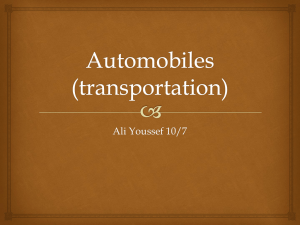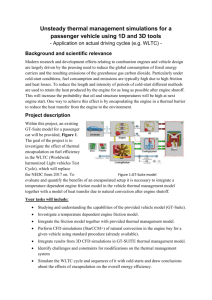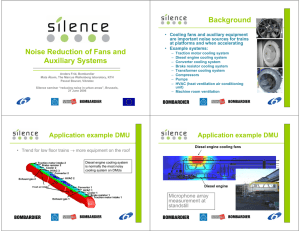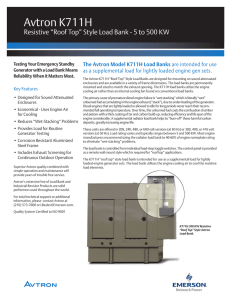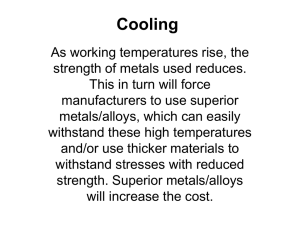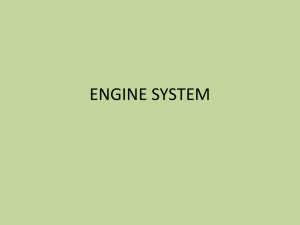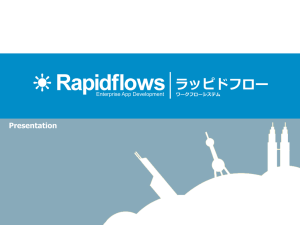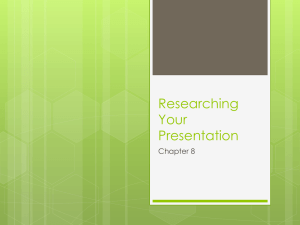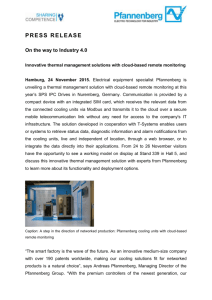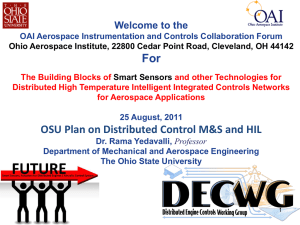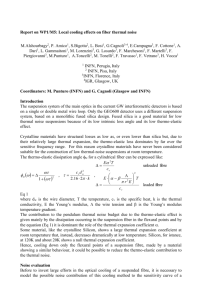Encapsulation of engine bay for active thermal control and lower
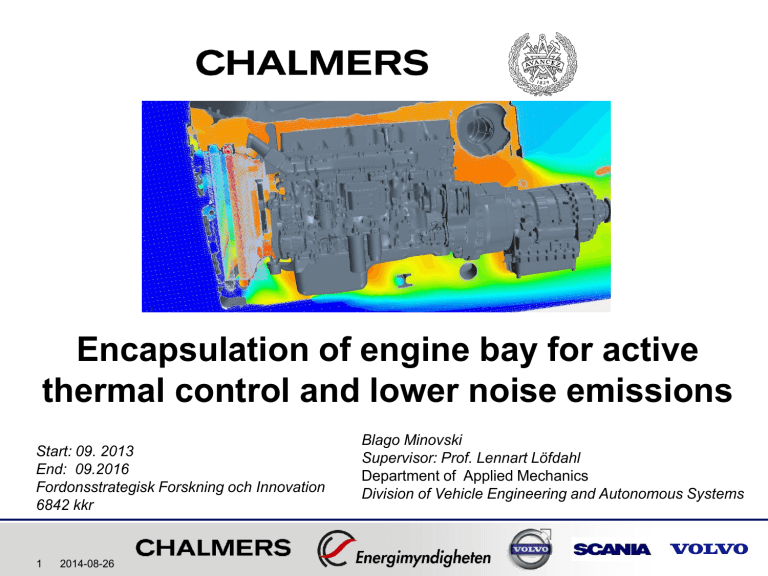
Encapsulation of engine bay for active thermal control and lower noise emissions
Start: 09. 2013
End: 09.2016
Fordonsstrategisk Forskning och Innovation
6842 kkr
Blago Minovski
Supervisor: Prof. Lennart Löfdahl
Department of Applied Mechanics
Division of Vehicle Engineering and Autonomous Systems
1 2014-08-26
Background
Higher requirements for energy-efficient and quiet vehicles.
Demands for shorter lead times implicate the design process in a way that noise levels, coolant and cooling air flows, etc. must be decided already at concept stage.
Blago Minovski
2 2014-10-09
Concept
Engine encapsulation retains heat in the powertrain
Increases probability of high initial oil temperature at next engine start
Reduces air-bourne noise
Optimized engine cooling and vehicle thermal management by implementation of active means of temperature and flow control in the engine bay.
Blago Minovski
3 2014-10-09
Aim
To develop a method and a software toolbox for evaluation of engine encapsulation effectiveness
– Cooling system temperatures for continuous drive cycles
– Hot spots (caused by radiation)
– Prediction of noise emissions
Blago Minovski
4 2014-10-09
Current Status
Developed and validated a detailed 1-D model of the cooling system coupled with engine model that predicts important cooling system parameters with continuous signal input.
Blago Minovski
5 2014-10-09
Current work
Implementation of three-dimentional tools to increase the accuracy of simulation and prediction
Blago Minovski
6 2014-10-09
Future work
Extend the 1-D model to simulate the engine oil temperature variation after shutdown
Thermal models of encapsulation structures
Propose an engine encapsulation concept with active control and analyze it with the developed tool
Work out radiation and acoustic models and correlate simulation results to test results for the selected concept
Blago Minovski
7 2014-10-09
Publications
"Study of Software Integration for Transient Simulation of Future Cooling
System for Heavy Truck Application," SAE Technical Paper 2014-01-
0653, 2014, doi:10.4271/2014-01-0653.
“An improved method for transient simulations of cooling systems with non-uniform thermal and flow boundaries” SAE Technical Paper
Blago Minovski
8 2014-10-09
